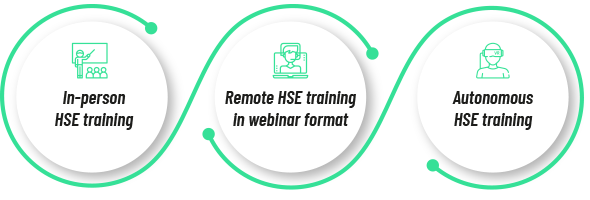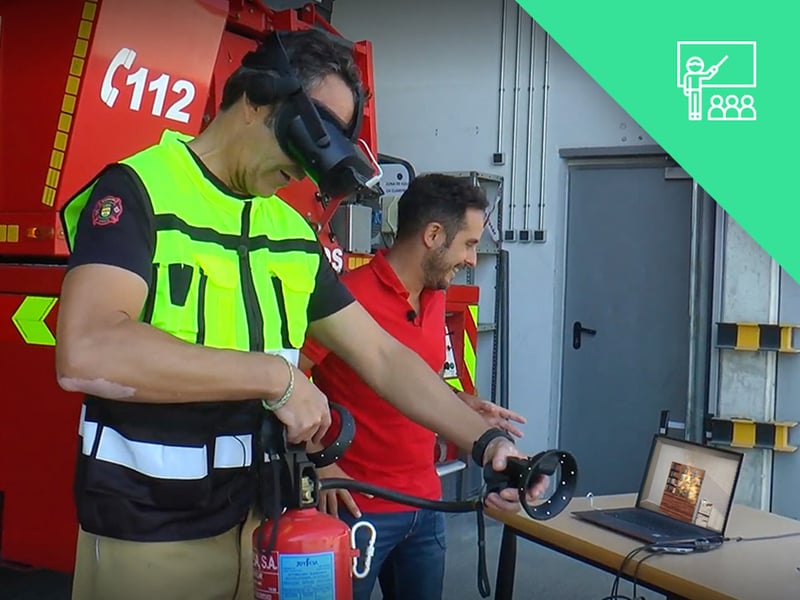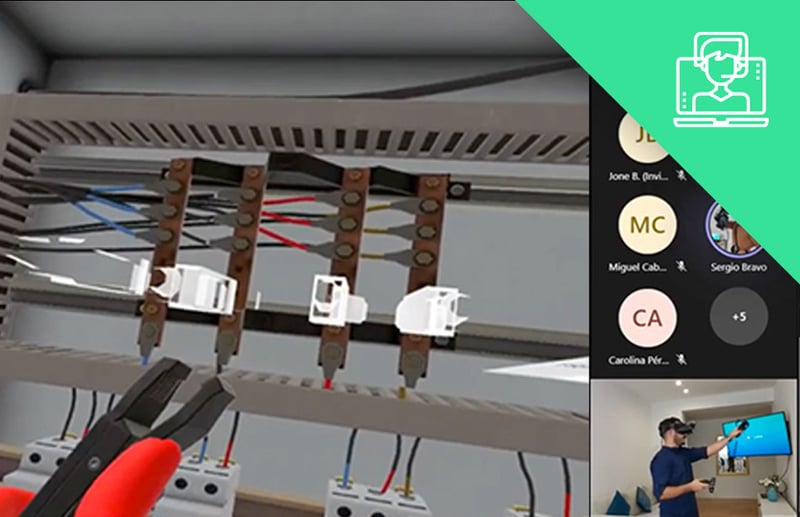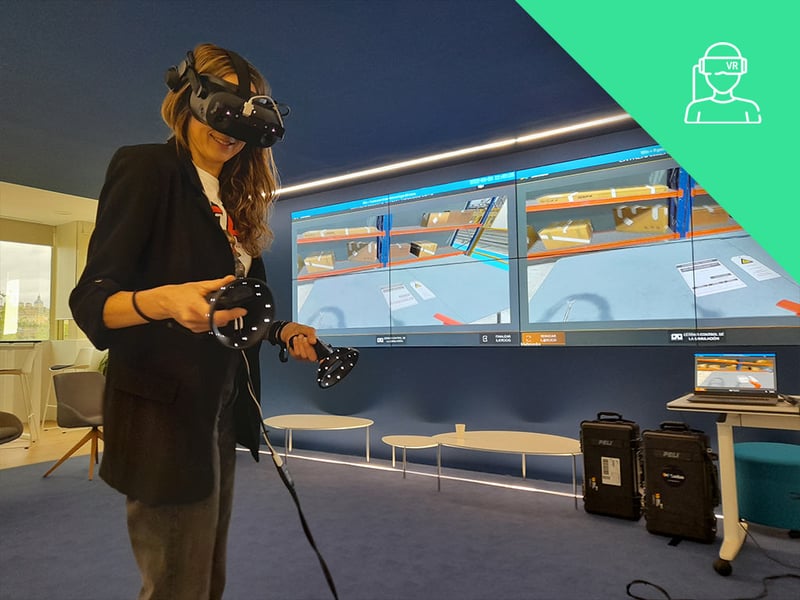How Virtual Reality benefits HSE Training Courses for Companies
Ludus' virtual reality offers three paths to deliver HSE training courses: in-person, remote, or autonomous. Each one has its own peculiarities and provides different training advantages to companies.

Advantages of delivering HSE training courses with VR in companies for each training mode
In-person HSE training

In this mode, the trainer delivers the HSE training course in person. While a student performs the simulation with the VR headset, the image and sound are shared on a screen to involve the rest of the group. In group trainings, different students can take turns in the simulation.
- Saving time on HSE training: when there is no need to rent equipment or facilities, trainings are easily organized and completed in less time. Additionally, according to a PWC study, those who use virtual reality learn up to four times faster.
- Reducing costs due to process or machine downtime: using simulations to practice (or as a "pre-practice" when real practice is mandatory) saves these types of costs. If an operator goes through the simulation of Elevator Platforms or Bridge Crane, for example, they will perform the subsequent practice effectively and in less time. This means that platforms (or the corresponding machinery in each case) will be less time down for HSE training courses.
- Increasing awareness to reduce accidents: workers experience sensations during HSE training. They can make mistakes that would be fatal in reality and visualize their consequences in the form of an accident, which increases awareness.
The increase in awareness and the reduction of the number of accidents go hand in hand. In addition to the human factor, this has an impact on benefits such as saving on absenteeism costs for companies.
- Saving by not having to rent facilities or equipment: an example of this cost reduction is fire extinguisher training. With Ludus' simulation, it is not necessary to rent different types of extinguishers to conduct a training. Additionally, there is also a saving on recharging, since when a real extinguisher is emptied, even partially, it must be recharged.
- Data to make informed decisions: Ludus simulations collect usage and performance statistics. This provides useful information to companies, such as proof of awareness or completion of the HSE training course.
The data allows demonstrating that workers have mastered the content of the training and that it has been delivered based on normative standards. This proof of awareness is useful for companies to avoid sanctions or litigation.
- The simulations can be used as a drill in companies to check if workers remember safety and health protocols.
Remote HSE Training in Webinar Format

In this type of remote HSE training courses, it is the trainer who puts on the VR headset and performs the simulation, sharing image and sound. Workers follow the training on their screens, and the trainer involves them by asking questions or letting them guide and make decisions. Webinar format training provides several benefits for companies:
- Standardized and scalable training in different locations or countries: all company employees, wherever they are, receive the same training. By carrying out all training with a single tool, based on normative prevention standards, uniform and scalable training is achieved.
- A single prevention department or service can be responsible for training in different company locations. This helps to have a more complete overview, and represents a cost saving by not having to hire several prevention services.
- Saving on costs for the transportation of people or equipment. By not having to transport trainers along with their equipment to different locations or countries, this type of cost is reduced.
- Mass training by shortening deadlines: savings in transportation or rental of facilities also result in a reduction of deadlines. HSE training courses can be organized at short notice, and large groups can be trained in a short period of time.
- Covering urgent training needs with little notice. By not having to rent facilities or transport a trainer, the response capacity increases. Trainings cannot always be organized months in advance, as unforeseen or urgent needs may arise. Webinar format training is ideal for covering this type of situation.
- Standardized data on usage and performance of all locations. If all training is carried out with the Ludus tool, the statistics will offer a more complete picture. In the case of having different locations, even the results can be compared.
- Dynamic and experiential webinar training: Ludus' tool provides a dynamic component to this type of distance HSE training. Employees go from following theoretical training to becoming active subjects of the training, making decisions and visualizing their consequences. A training experience beyond the theoretical is achieved, all through a screen.
Autonomous HSE Training with Virtual Reality

The autonomous training modality is useful for practicing or reviewing various procedures, such as CPR or Fire Extinguishing. These and other simulations have a guided mode, so the worker can complete them and train on their own. The company must have a room to install the equipment so that employees can go through the simulations.
- Saving on organization costs. As workers train autonomously, the company does not have to stop large groups to organize an HSE training course.
- Reduction of costs due to process downtime. One of the advantages of not having to conduct group training is that activity does not cease. With this modality, the company's processes continue while workers are trained one by one.
- Flexible scheduling. Employees are trained based on their availability and work schedule. In this way, it is not necessary to schedule an HSE training course at a specific time that may be inconvenient for some operators.
- Refresh HSE trainings. The autonomous modality is suitable when workers need to undergo training again after a certain period. If employees need to refresh or review their CPR training, for example, they can do so autonomously.
